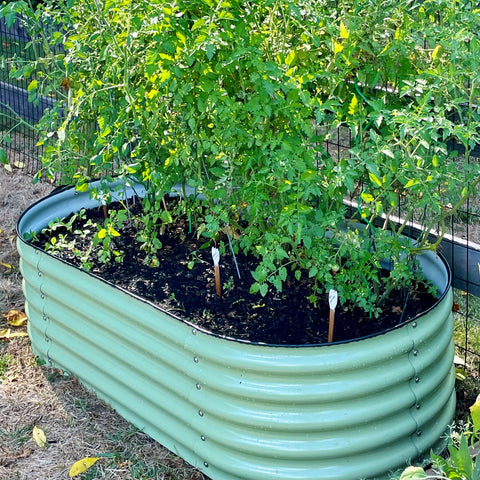Winter Oats: Cover Crops To Improve The Soil of Family Gardens or Garden Beds
Why does winter oats improve your home garden or garden beds?
Winter oats are a popular, affordable and beneficial mulch crop, suitable for your home garden.

Winter oats are cool annual grasses that ripen rapidly in about 60 days and provide five important benefits:
Erosion Control - The winter oats' mulch crop will adhere to the soil to prevent it from being washed away in rain and snow.
Weed suppression - When oats sprout and grow, they choke weeds and prevent them from growing.
Soft soil - fiber roots inflate and break down compacted soil. This root action will improve soil quality and make it easier to use in spring planting.
Increase organic matter - When oats are mowed in the spring, they will provide organic matter and help the growth of microorganisms.
Regulation of important nutrients - oat is an excellent nutrient scavenger, which will absorb excess nitrogen in the soil.
How to plant winter oats in the garden or garden beds.
For best results, plant winter oats in late summer or early autumn, about 40 to 60 days before the first average fatal frost. After clearing and preparing the garden bed, plant the oats seeds into the soil. Mix them into the soil, about 1/2 inch to 1 inch deep, and keep watering to help oats build up quickly.
Oats and peas grow better together
Sometimes oats are grown as nurse crops for beans, such as Austrian winter peas or dark red clover. These crops are well matched in companion planting. Oats provide erosion control and cover for frost damage so beans can grow. Beans are slow to establish, so this protection is valuable. In turn, beans fix nitrogen from the air into the soil.
How to integrate winter oats into your garden or garden beds
Oats slowly die after a series of hard freezes, usually wintering in Zone 7 and colder areas. The remaining plant residues will continue to isolate the soil, prevent erosion, and suppress weeds until spring. If you live in a warm area, it is easy to kill oats by mowing soon after flowering.

Prepare your garden for spring
When it is necessary to plant new crops on the bed covered by winter oats, the dead plant material is a rich cover. Oats are very suitable for no tillage gardening. As the season warms, the residues will decompose rapidly. If you like, you can also break down dead plants and merge them directly by hoeing or farming. Either way, the decomposed oats will add valuable nutrients and organic matter to the soil of the garden bed.
If you have already done this, congratulations! By planting winter oats, you can not only protect your garden bed from erosion and weeds, but also actively establish better soil quality. This is a simple investment - just a little time and effort - that can bring great returns.
